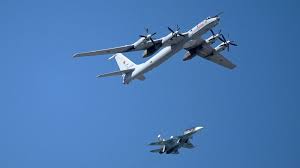Understanding NATO’s Role in Modern Geopolitics

Introduction
The North Atlantic Treaty Organization (NATO) is a military alliance formed in 1949, consisting of 31 member nations. Its primary purpose is to ensure collective defence and promote stability within the North Atlantic region. Given the increasing tensions on the global stage, particularly with regard to Russia and the ongoing conflict in Ukraine, NATO’s role has become more critical than ever. This article will provide insights into the current events surrounding NATO and its significance for international peace and security.
Current Developments in NATO
In response to Russia’s aggression in Ukraine, NATO has taken several significant steps to bolster its eastern flank. In June 2022, NATO officials convened for a summit in Madrid where they outlined a new Strategic Concept aimed at addressing the evolving threat landscape. The alliance announced an increase in its response force to over 300,000 troops, signifying a major shift in its deterrence posture.
Moreover, NATO has extended an invitation to Finland and Sweden to join the alliance, strengthening its northern borders. Their accession marks a historic shift in the Nordic countries’ defence policies, driven by growing concerns over Russian expansionism. This is a reflection of NATO’s flexibility and adaptability in catering to the security needs of its members as geopolitical dynamics continue to evolve.
The Importance of Unity in NATO
One of the core principles of NATO is collective defence, under Article 5 of the North Atlantic Treaty. This principle was invoked for the first time after the 9/11 terrorist attacks. Today, unity among member states is of utmost importance. The dynamics within NATO are tested as members face differing views on military expenditure and intervention strategies. Nonetheless, challenges have historically led to stronger cooperation and bilateral relations amongst allies.
Conclusion
As the world navigates an increasingly unpredictable security environment, NATO’s significance remains paramount. The alliance not only serves as a deterrent against potential aggressors but also fosters diplomatic ties between member nations. The expansion of NATO, its increased operational capabilities, and a unified approach to emerging threats are essential for maintaining stability and peace in Europe and beyond. As global challenges such as cyber warfare and climate change also threaten international security, NATO’s role in adapting and responding to these threats will be crucial in the years to come. For citizens of NATO member countries, understanding and supporting the alliance is integral to ensuring a secure future.








